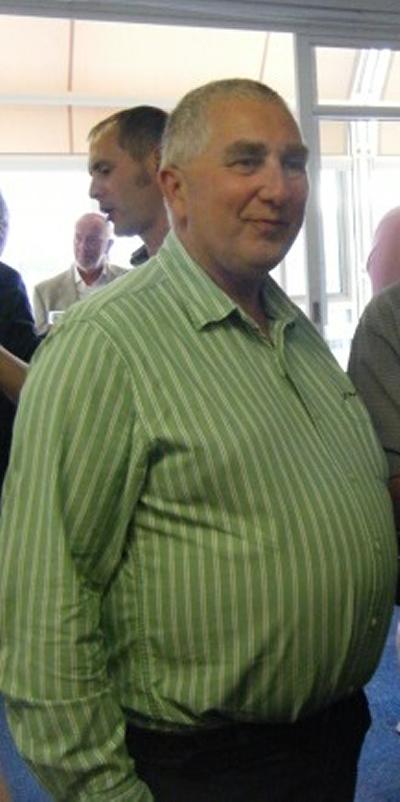A tribute to Professor Andrew P. Bradbury

Andy Bradbury, one of our longstanding visiting professors in the Faculty, died suddenly on 6 August 2014. His untimely death represents a significant loss to British and international coastal engineering as Andy held many important roles at local and national levels. He was well known as founding Director of the Channel Coastal Observatory based at the National Oceanography Centre in Southampton and Head of the Coastal Group at New Forest District Council.
Andy vigorously supported our two MSc coastal engineering programmes: MSc Engineering in the Coastal Environment (ECE) and MSc Coastal and Marine Engineering and Management (CoMEM). This included teaching, dissertation supervision and also employing many of the graduates over the years. He was also actively involved in research at the University.
A Southampton alumnus, Andy graduated in Geology in 1981, and joined Hydraulics Research at Wallingford as a Scientific Officer and worked on the performance of seawalls, breakwaters, sea defence and coastal protection schemes. In 1988, Andy moved to New Forest District Council as an Assistant Engineer in Coast Protection. He studied part-time for a PhD at this University completed in 1988, on the response of shingle barrier beaches to extreme hydrodynamic conditions. This was inspired in part by the great December 1989 storm which almost breached Hurst Spit. Through the early 1990’s Andy was the driving force behind the £6m Hurst Spit Stabilisation, completed in 1996. This won the Institution of Civil Engineers Merit Award in 1997 and the scheme continues to provide protection to the Western Solent.
Andy was influential within UK coastal engineering and served on the Institution of Engineers Coastal Engineering Advisory Panel. He was Chair of the Southern Coastal Group and lead advisor to the Chair of the Standing Conference on Problems Associated with the Coastline (SCOPAC). He was a member of numerous National Steering Groups and Project Boards, including the UK Coastal Monitoring and Forecasting, and the Environment Agency's Theme Advisory Group on Coastal Research, Development and Dissemination. In February 2014, Andy was invited and gave the prestigious Institution of Civil Engineers Vernon Harcourt Lecture to share his enthusiasm and knowledge for the coast, and particularly the value of long term coastal monitoring which was absent when Andy started his career.
Andy’s vision and foresight led to the development of a co-ordinated and consistent regional approach for coastal monitoring and data collection for the Southeast of England. He established the Channel Coastal Observatory to deliver this DEFRA-funded programme and was instrumental in the development of the national network of regional coastal monitoring programmes; he also championed making data freely available. These large scale programmes have attracted a combined budget of over £32million to date. As the data length grows, they provide improving input data for the design and management of England's coastal protection and coastal flood defence schemes, as well as better coastal management in general.
Nationally, recent research studies included the stability and breaching of shingle barrier beaches, wave climate and the impacts of bi-modal waves on shingle beaches, and the behaviour of mixed sand and shingle beaches. These are all important issues in our region. He was also an active member of the NERC-funded iCOASST (integrating COASTal Sediment Systems) Project, where he played a key role in linking the research to practise and establishing a data archive for the project legacy.
Andy's insight, enthusiasm and expertise will be greatly missed by his many friends and colleagues, and by the coastal engineering profession as a whole.